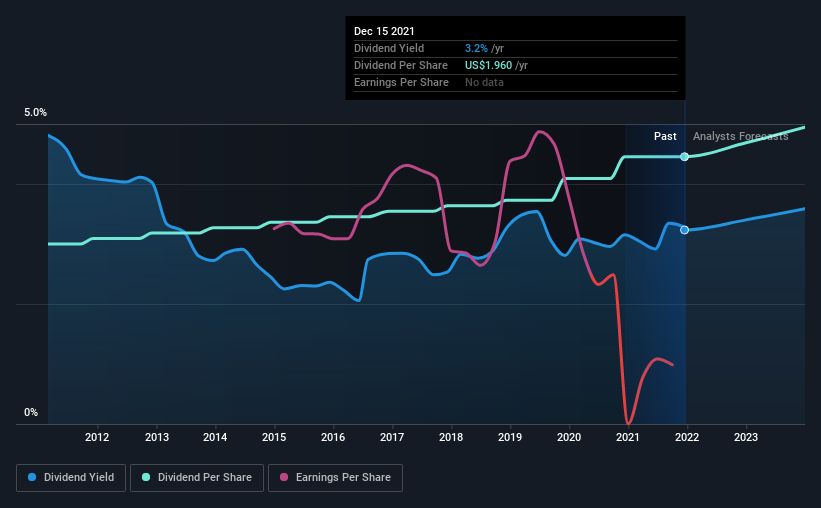Bristol-Myers Squibb's (NYSE:BMY) Upcoming Dividend Will Be Larger Than Last Year's
Bristol-Myers Squibb Company's (NYSE:BMY) dividend will be increasing on the 1st of February to US$0.54, with investors receiving 10% more than last year. This makes the dividend yield 3.3%, which is above the industry average.
Check out our latest analysis for Bristol-Myers Squibb
Bristol-Myers Squibb's Distributions May Be Difficult To Sustain
If the payments aren't sustainable, a high yield for a few years won't matter that much. Bristol-Myers Squibb is not generating a profit, but its free cash flows easily cover the dividend, leaving plenty for reinvestment in the business. In general, cash flows are more important than the more traditional measures of profit so we feel pretty comfortable with the dividend at this level.
Recent, EPS has fallen by 48.4%, so this could continue over the next year. While this means that the company will be unprofitable, we generally believe cash flows are more important, and the current cash payout ratio is quite healthy, which gives us comfort.
Bristol-Myers Squibb Has A Solid Track Record
Even over a long history of paying dividends, the company's distributions have been remarkably stable. The dividend has gone from US$1.32 in 2011 to the most recent annual payment of US$1.96. This works out to be a compound annual growth rate (CAGR) of approximately 4.0% a year over that time. While the consistency in the dividend payments is impressive, we think the relatively slow rate of growth is less attractive.
Dividend Growth Potential Is Shaky
The company's investors will be pleased to have been receiving dividend income for some time. Let's not jump to conclusions as things might not be as good as they appear on the surface. Bristol-Myers Squibb's EPS has fallen by approximately 48% per year during the past five years. Such rapid declines definitely have the potential to constrain dividend payments if the trend continues into the future.
In Summary
Overall, this is probably not a great income stock, even though the dividend is being raised at the moment. The company is generating plenty of cash, but we still think the dividend is a bit high for comfort. This company is not in the top tier of income providing stocks.
Investors generally tend to favour companies with a consistent, stable dividend policy as opposed to those operating an irregular one. At the same time, there are other factors our readers should be conscious of before pouring capital into a stock. For instance, we've picked out 3 warning signs for Bristol-Myers Squibb that investors should take into consideration. If you are a dividend investor, you might also want to look at our curated list of high performing dividend stock.
Have feedback on this article? Concerned about the content? Get in touch with us directly. Alternatively, email editorial-team (at) simplywallst.com.
This article by Simply Wall St is general in nature. We provide commentary based on historical data and analyst forecasts only using an unbiased methodology and our articles are not intended to be financial advice. It does not constitute a recommendation to buy or sell any stock, and does not take account of your objectives, or your financial situation. We aim to bring you long-term focused analysis driven by fundamental data. Note that our analysis may not factor in the latest price-sensitive company announcements or qualitative material. Simply Wall St has no position in any stocks mentioned.

 Yahoo Movies
Yahoo Movies 

